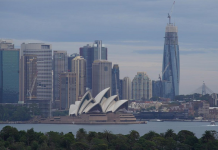The World Trade Organization agreed Wednesday to hear complaints from a range of countries over new US steel and aluminium tariffs, as well as complaints from Washington over retaliatory duties.
The WTO’s Dispute Settlement Body (DSB) agreed to establish panels to review US President Donald Trump’s decision to hit a long line of countries with tariffs of 25 percent on steel and 10 percent on aluminium.
The DSB will create separate panels for the complaints by the European Union, China, Canada, Mexico, Norway, Russia and Turkey, after the US said it would not agree to a single panel to hear all of them.
The DSB agreed Wednesday to Washington’s request for three panels to rule on the legality of retaliatory tariffs imposed by Canada, China, Mexico and the European Union.
It also agreed to a US call for a panel to be created to review “certain Chinese measures pertaining to the protection of intellectual property rights.”
Marking a departure from a decades-long US-led drive for free trade, Trump has justified the steep tariffs with claims that massive flows of imports to the United States threaten national security.
Washington invoked a rarely used WTO exception that allows a country to take “any action which it considers necessary for the protection of its essential security interests.”
Speaking at Wednesday’s meeting, US Ambassador Dennis Shea warned of the “risks posed to the WTO dispute settlement system when a member challenges measures taken for the protection of essential security interests.”
The US delegation also cautioned that any review of measures taken for national security reasons would undermine the “legitimacy” and “even the viability of the WTO as a whole”.
The tariff spat has escalated into an all-out trade war between the US and China and growing trade tensions between Washington and many of its traditional allies.
The decision to establish the panels follows rounds of failed consultations between the parties and mark an escalation in an ongoing showdown at the WTO around Trump’s controversial trade policies.
The first requests to establish the panels were rejected last month, prompting the sides to file second requests.
Under WTO regulations, parties in a dispute can block a first request for the creation of an arbitration panel, but if the parties make a second request, it is all but guaranteed to go through.
The creation of a DSB panel usually triggers a long and often costly legal battle that sometimes takes years to resolve.
















